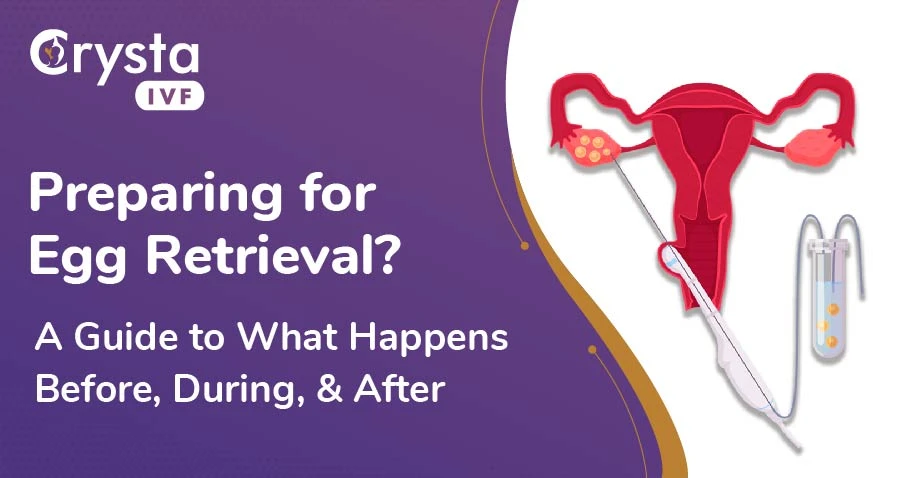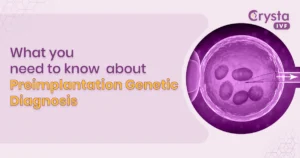If you’re considering or about to undergo the egg retrieval process in IVF, you might wonder what to expect before, during, and after the procedure. Feeling a bit nervous or uncertain is natural, but rest assured that you’re not alone.
Egg retrieval is a critical step in the IVF journey, and understanding the process can help ease any fears or concerns you may have. So, let’s break down everything you need about egg retrieval, including what to expect, how to prepare, and what to do post-procedure. So, let’s get started!
What is Egg Retrieval Process in IVF & Why Is It Important
Egg retrieval is essential in the in-vitro fertilization IVF process. During retrieval, a doctor will use a needle to remove eggs from the woman’s ovaries. These eggs are then fertilized with sperm in a lab setting, and the resulting embryos are implanted in the woman’s uterus.
Egg retrieval is a critical step in IVF because it allows for the creation of embryos outside the body, which can then be implanted in the uterus for pregnancy. Without this process, infertile women or having other reproductive issues would be unable to become pregnant.
The egg retrieval process is relatively quick and straightforward. It can be a bit uncomfortable, and there may be some mild cramping or discomfort afterward, but serious complications are rare and can be appropriately managed.

Before the Egg Retrieval Process
- Follow medication instructions precisely, including timing and dosage, to help stimulate the ovaries and regulate hormone levels.
- Avoid eating or drinking for a specified time before the procedure to reduce the risk of anesthesia complications.
- Wear loose and comfortable clothing on the day of the procedure to reduce discomfort and facilitate movement.
- Clarify any doubts or concerns with the medical staff before the procedure to ensure a smooth and stress-free experience.
- Before the procedure, notify the clinic if you experience any unusual symptoms or changes in your health, such as fever or abdominal pain.
- Avoid heavy lifting, strenuous exercise, or physical activity for a few days before the procedure to minimize the risk of ovarian torsion or injury.
- Inform your doctor of any allergies, medications, or medical conditions you have to avoid any adverse reactions or complications during the procedure.
During the Egg Retrieval Process
During the egg retrieval process, eggs are retrieved from a woman’s ovaries for fertilization in the laboratory as part of assisted reproductive technology (ART) procedures such as in-vitro fertilization (IVF). Here is an overview of the procedure and what to expect:
- Before the procedure, the patient will receive instructions on how to prepare.
- A small ultrasound probe is inserted into the vagina to locate the follicles (sacs containing the eggs) in the ovaries.
- A needle is inserted through the vaginal wall and into each follicle to retrieve the eggs using suction.
- After the procedure, the patient will be monitored briefly to ensure no complications. Most women can resume normal activities within a day or two.
- The eggs are then fertilized in the laboratory, and the resulting embryos are transferred to the uterus.
After the Egg Retrieval Process
After the egg retrieval process, patients must take care of themselves during recovery. Here are some important points to keep in mind:
- The recovery period after the procedure is usually brief, and most women can return to normal activities within a day or two. However, it is essential to rest and avoid strenuous activities for a few days.
- Some common side effects of the procedure include cramping, bloating, and mild vaginal bleeding. These symptoms usually go away within a few days.
- If a patient experiences severe pain, fever, or heavy bleeding, they should immediately contact their doctor.
- Drinking fluids and eating a healthy diet can help manage side effects.
- Patients must attend follow-up appointments to monitor progress and discuss the next steps. They should also follow their doctor’s instructions regarding medications, diet, and activities.
A Word From Crysta IVF
The egg retrieval process can be a stressful time for many couples who are undergoing fertility treatment. But knowing that you are not alone on this journey is essential. At Crysta IVF, most trusted fertility chain in India, understand the emotional turmoil that comes with infertility.
We provide hope, support, and advanced technologies to help women overcome this challenge and achieve their dream of motherhood.
Patients should also be careful with all the instructions provided by the doctor, including fasting requirements and medication schedules. It is also essential to manage stress during the process, such as through exercise & meditation.
And most importantly, seeking treatment from a trusted and reputed IVF clinic in Delhi or near you, such as Crysta IVF, can help ensure that every step in the IVF process goes as smoothly as possible. We have experienced doctors and staff who can provide the best care and support.
Whether you are considering egg retrieval for fertility preservation, egg donation, or in vitro fertilization, it’s important to remember that every woman’s journey is unique, and there is no one-size-fits-all approach.
By working closely with your healthcare provider and taking care of yourself during the process, you can maximize your chances of a successful outcome.
Also read: What happens to your body after embryo implantation?




